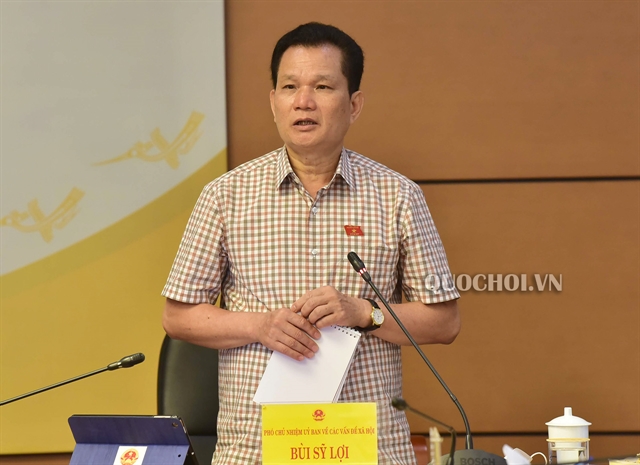 Politics & Law
Politics & Law


|
| Bùi Sỹ Lợi, deputy head of National Assembly’s Committee for Social Affairs speaks at a meeting of the committee on Wednesday. Photo quochoi.vn |
HÀ NỘI — Efforts to send Vietnamese workers abroad should be careful to ensure sufficient human resources for the country's development, said Bùi Sỹ Lợi, deputy head of National Assembly’s Committee for Social Affairs.
“Only highly skilled Vietnamese who are healthy and have knowledge should be sent to work abroad, with a view to maintaining the image of Vietnamese labourers all over the work,” Lợi said at a meeting of the NA Committee for Social Affairs on Wednesday.
While discussing the draft revised Law on Vietnamese Employees Working Overseas, many committee members agreed on the need to revise the law.
Working overseas helped improve the lives of many Vietnamese people, but regulations for entities engaged in sending, training and recruiting people for overseas work should be clarified to avoid harming the image of the country, they said.
They also said that the responsibilities for businesses towards the workers should be detailed.
Việt Nam has reached the "golden population" period, requiring labour for the country’s socio-economic development.
Skilled labourers of certain sectors should be dispatched abroad where they would enjoy high income and access to advanced science and technology, allowing them to return home with valuable experience, deputies said.
Đào Ngọc Dung, Minister of Labour, Invalids and Social Affairs, said businesses should select suitable jobs for workers abroad, adding that linking vocational schools with enterprises was a common trend.
Ratification of EVFTA
Also on Wednesday, the committee discussed the ratification of the EU-Việt Nam Free Trade Agreement (EVFTA). Many members suggested the Government prepare a report on the agreement’s impact on the country’s economic growth, especially in the textile and footwear sectors.
The impact of the agreement on employment, social security and institutions related to labour and trade unions should be assessed, members said.
On the same day, the committee discussed Việt Nam’s plan to join Convention 105 on the abolition of forced labour developed by the International Labour Organisation (ILO).
Joining the convention would show Việt Nam’s political commitment to implementing ILO member states’ obligations, according to the committee members.
Việt Nam’s participation in the convention and other conventions of ILO is necessary as the country is integrating deeper into the world economy via trade deals, they said.
In terms of socio-economy, the convention would help prevent the risks of forced labour and protect the rights and interests of workers. — VNS




